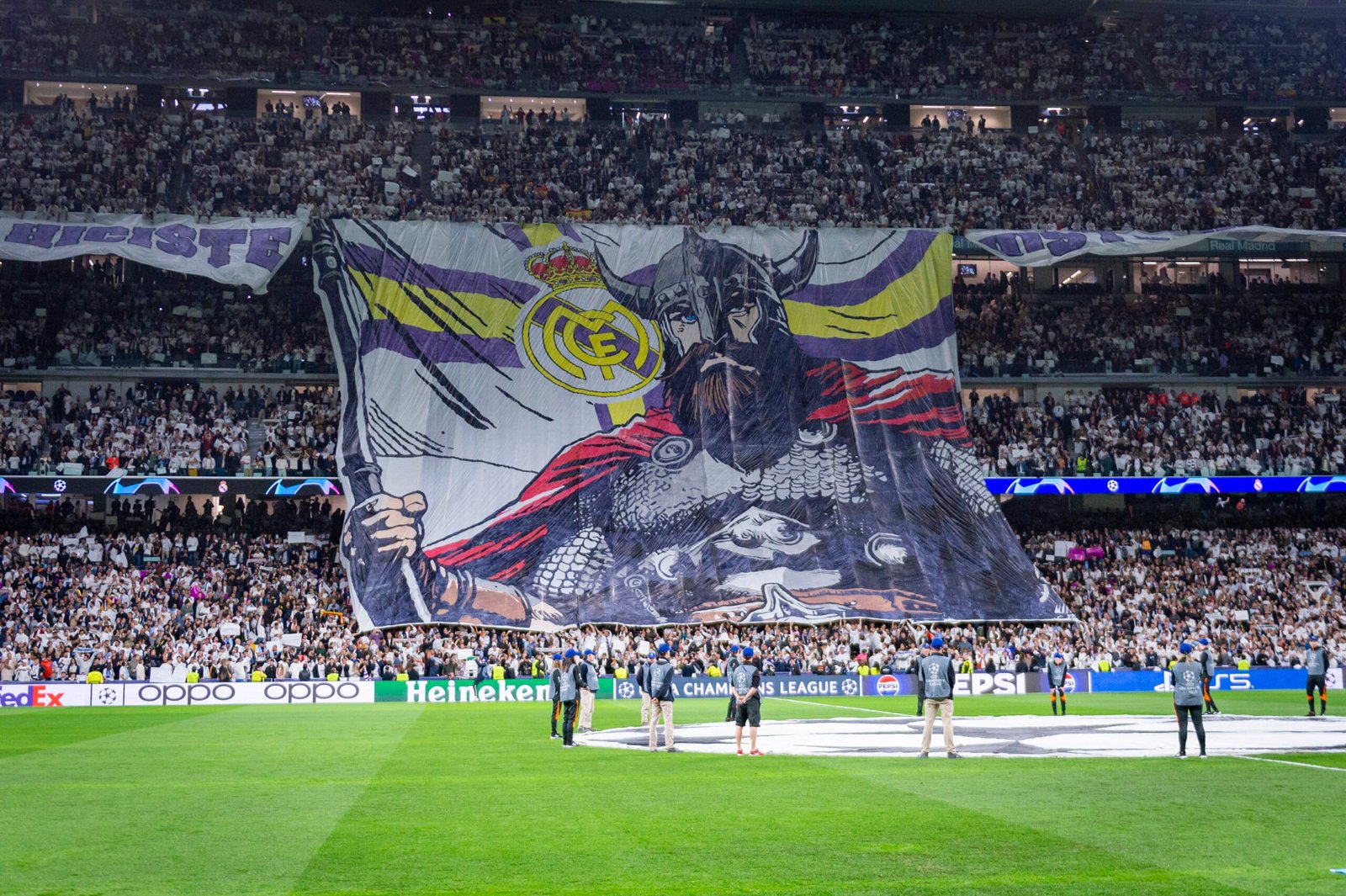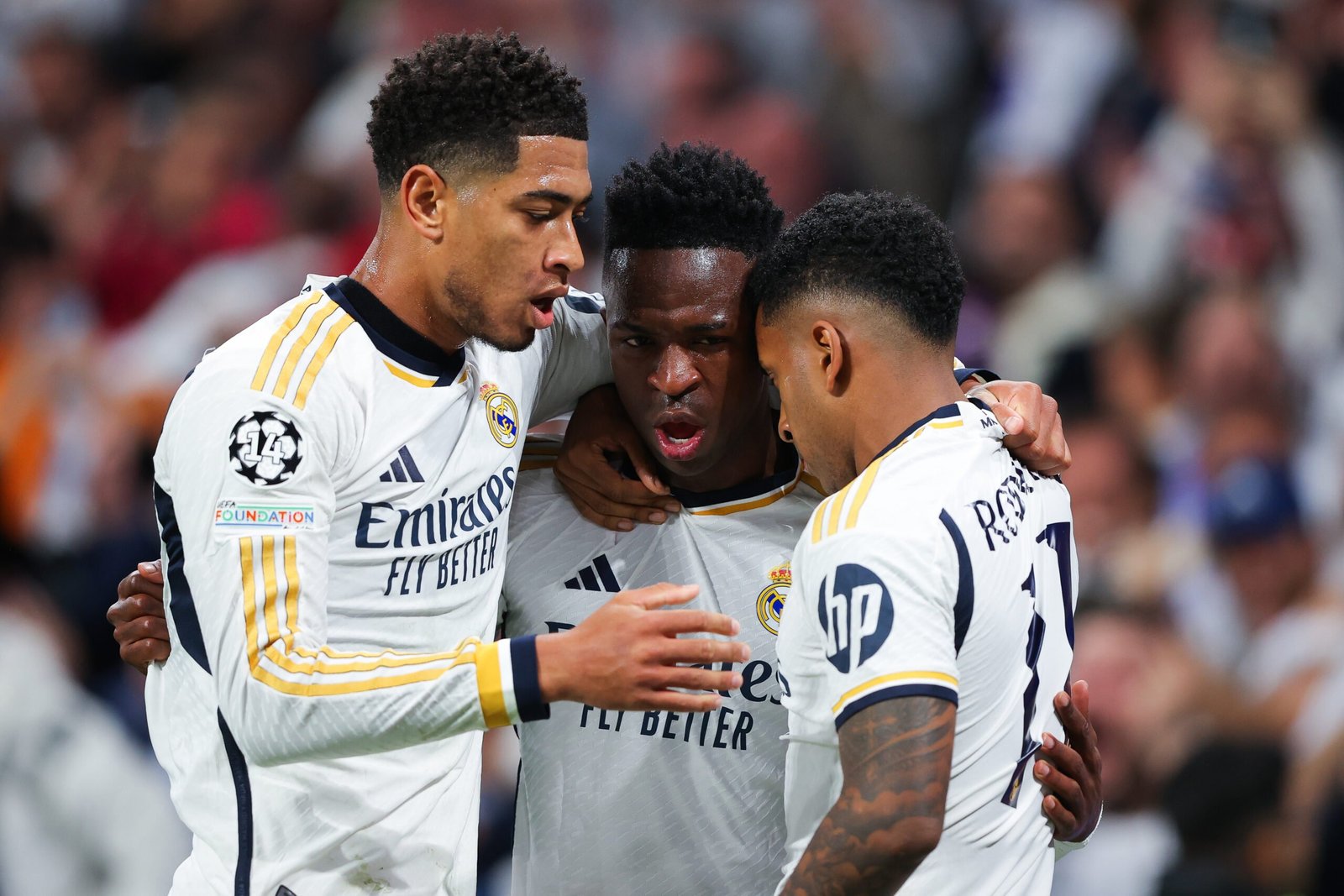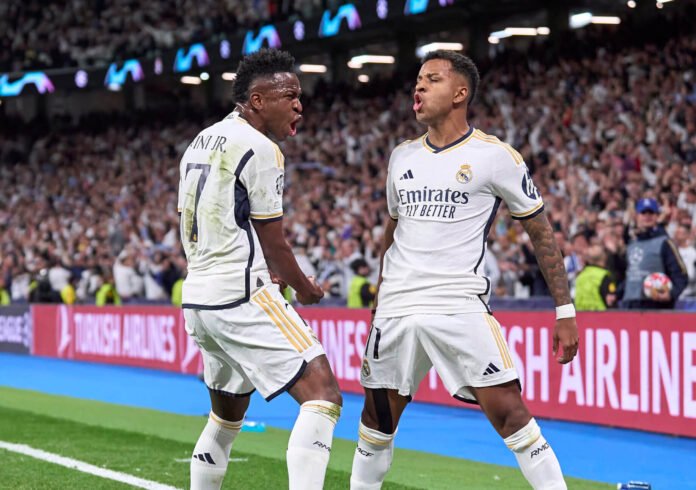As soon as the final whistle blew in Real Madrid and Manchester City’s electric 3-3 draw, two men in suits greeted each other calmly and cordially on the sidelines, no worse the wear for having just masterminded one of the craziest games in the Champions League.
Carlo Ancelotti and Pep Guardiola, who seem to never stop thinking and re-thinking in search of an advantage, have taken this glittering modern European rivalry to another dimension in the process. Their sides have scored 23 goals in their past five meetings. Tuesday’s quarter-final first leg in the Spanish capital was widely described as being worthy of the final, and in truth it even exceeded expectations.
During Guardiola’s time as Barcelona manager it was said in Spain that he always invented something when visiting the Santiago Bernabeu, a sign of personality, respect and perhaps nervousness.
On this occasion it was Ancelotti who surprised everyone with something new: he put Rodrygo on his preferred left flank and relocated his most in-form player, Vinicius Junior, to a more central position.
“We made a new tactic,” Rodrygo said afterwards. “They didn’t expect me to play on the left, because Vinicius is always there.”
Madrid and City meet again in Manchester next Wednesday (Chris Brunskill/Fantasista/Getty Images)
Ancelotti is often labelled a ‘players’ coach’ — a football manager somehow with fewer tactical ideas than somebody like Guardiola is known for. He seemed happy to play up to this in his pre-match press conference, where the game truly began.
“I don’t think we’ll be doing strange things (with the starting XI),” Ancelotti started. “Maybe…” he continued, as if on the verge of giving something away. “No, I’m not going to tell you anything,” he said finally. “But don’t worry, you won’t make a mistake with the line-up, there is only one doubt (whether Nacho or Aurelien Tchouameni would partner Antonio Rudiger at centre-back).”
Ancelotti, who the following day would be coaching his 200th Champions League match, was not telling the whole truth. There was nothing unusual about the names on the teamsheet — it was how they were deployed.
Guardiola, for his part, praised the tactical level of his opposite number before the game. He began to sense some trickery when Madrid’s XI came out.
“I thought it might be a 4-3-3, but because (Ancelotti) said against Leipzig he didn’t like what he did, I thought they were going to play the way they did,” the City coach said after the match. “I was a bit surprised.”
On the pitch though, the first to be surprised were Madrid, who went a goal behind in under two minutes following Bernardo Silva’s free-kick (and Andriy Lunin’s mistake) and were damaged by Tchouameni’s yellow card. The Frenchman will be suspended for the second leg.
The famous ‘Bernabeu effect’ evaporated. But the demanding stadium immediately — and as strange as it may sound, this is unusual — reacted with encouragement. As well as Ancelotti’s trickery, the home support was key.

Many home fans turned out in white, answering a social media campaign to do so (Alberto Gardin/Eurasia Sport Images/Getty Images)
The fans had turned out in force, with a large presence in the vicinity of the stadium from more than three hours before the game.
An hour and a half before kick-off, Real Madrid’s bus appeared, descending from Concha Espina towards the Plaza de los Sagrados Corazones. Escorted by police officers on horseback, it made its way through a sea of supporters on either side. Scarves in the wind, flares held aloft, they chanted at great volume. It was delirium.
Inside the stadium, fans began to play their role much earlier than usual, singing during the warm-up. At the Bernabeu it is ordinarily the team that ignites the crowd, not the other way around. But in a big game like yesterday’s, supporters started the push.
That energy was transferred onto the pitch, as Madrid’s reaction overcame their early clumsiness — and Ancelotti’s thinking paid off. Los Blancos created plenty of danger through Rodrygo, who owned the left flank, and Vinicius Jr, who occupied more central spaces — while still remaining active on that wing.
Madrid went into the break with 40 per cent of their attacks down the left side. Although the equaliser came from an Eduardo Camavinga shot deflected in by Ruben Dias, Rodrygo and Vinicius Jr created almost all the danger, and they combined to put Madrid 2-1 up just over a minute later.
It was Rodrygo’s 16th goal of the season in all competitions, his fourth in his past three matches for club and country, which included a brace against Athletic Bilbao in Madrid’s previous fixture, where he also played on the left wing.
After that home La Liga game on March 31 it was decided to keep him in the position, club sources told The Athletic. “I wanted to keep his momentum,” Ancelotti said on Tuesday night.
With Bellingham emptying himself physically but failing to connect with them, almost everything came down to the Brazilian duo. Vinicius Jr had a good chance to put Madrid 3-1 up before half-time, Rodrygo had one in the 56th minute.
That’s when Real Madrid began to deflate.

Bellingham, who missed some games with injury and suspension, has not scored for Madrid since early February (James Gill – Danehouse/Getty Images)
“It went well, even though the result wasn’t what we wanted,” Rodrygo said. The striker was substituted in the 72nd minute, by which time City had scored two goals from distance in five minutes to go 3-2 up.
“It was a great game from us, competitive and evenly matched as long as we had the energy,” said Ancelotti, whose team were saved by Federico Valverde’s volley for 3-3, assisted by Vinicius Jr.
The Italian may have changed Rodrygo too early, while an exhausted Bellingham was kept on. But his selection of Tchouameni alongside Rudiger helped shackle Erling Haaland (who has now gone three games against Madrid without scoring) and allowed Camavinga to shine in midfield. He was also precise in bringing on Luka Modric, key to the equaliser.
“What are you going to do against this? Clap and that’s it,” Guardiola said of Valverde’s goal.
The general feeling is that there will be plenty more to applaud in a week at the Etihad Stadium. And perhaps we will see another Ancelotti invention.
(Top photo: Jose Manuel Alvarez/Quality Sport Images/Getty Images)
Read the full article here


